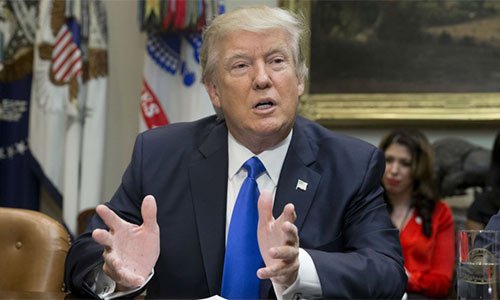
The U.S. Trade Representative’s office on Wednesday reaffirmed President Donald Trump’s plans to impose an additional 5% tariff on a $300 billion list of Chinese imports starting on Sept. 1 and Dec. 15.
The USTR will impose a 15% tariff on some of the targeted goods from Sept. 1, with the rest, including cell phones and laptop computers, to get a 15% tariff on Dec. 15, the agency said in a Federal Register notice. The Trump administration had previously planned to impose a 10% tariff on these imports.
Trump announced the tariff increase last Friday on Twitter, in response to Chinese retaliatory tariffs on $75 billion worth of U.S. goods, including crude oil.
The Federal Register notice, however, did not mention Trump’s announcement of his intention to increase the duty to 30% on a $250 billion list of Chinese imports on Oct. 1 that have already been hit with a 25% tariff. USTR has previously said it planned to conduct a public comment period on that increase.
“China’s most recent response of announcing a new tariff increase on U.S. goods has shown that the current action being taken is no longer appropriate,” USTR said in the notice here.
The Trump administration has, for two years, been trying to persuade China to eliminate unfair trade practices and make sweeping changes to its policies on intellectual property protection, forced transfers of technology to Chinese firms, industrial subsidies and market access.
The dispute between the world’s two biggest economies in July 2018 boiled over into tariffs on hundreds of billions of dollars’ worth of each other’s goods, and threatens to engulf all trade between the countries, putting global growth at risk.
USTR accuses China of “unfair acts, policies and practices,” including its retaliatory tariffs and “concrete steps to devalue its currency,” allegations denied by Beijing.
The U.S. Treasury earlier this month declared China a currency manipulator.
“In short, instead of addressing the underlying problems, China has increased tariffs and adopted or threatened additional retaliation to further protect the unreasonable acts, policies, and practices identified in the investigation, resulting in increased harm to the U.S. economy,” USTR said in the notice.
Copyright Ships & Ports Ltd. Permission to use quotations from this article is granted subject to appropriate credit given to www.shipsandports.com.ng as the source.
